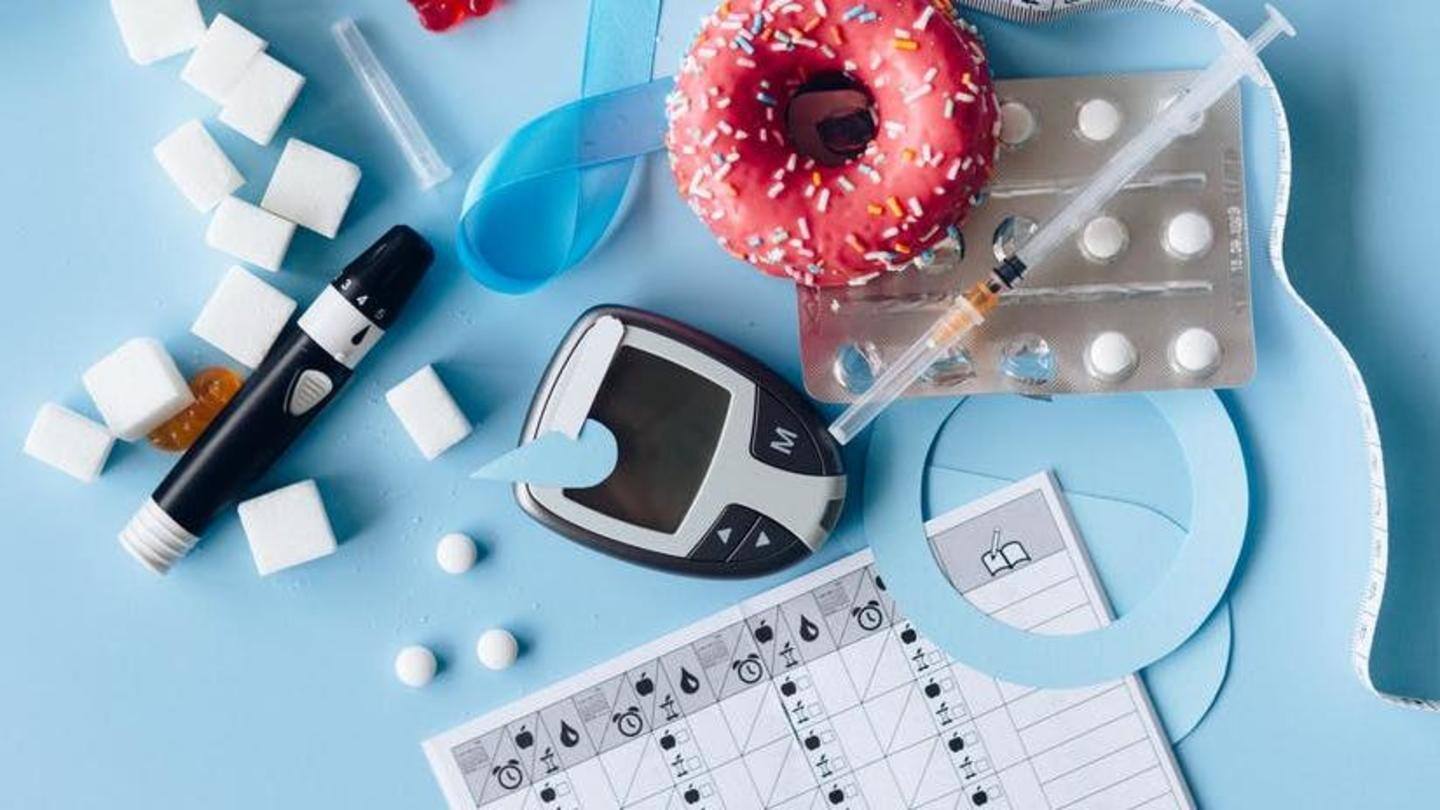
#HealthBytes: What is hypoglycemia and how can it be managed?
What's the story
We all are aware that blood sugar or glucose is the primary source of energy for the body.
Diabetic hypoglycemia occurs when a person has unusually low blood sugar levels. It develops when blood glucose levels are below 70 mg/dL.
Common symptoms include sweating, dizziness, shakiness, palpitations, and the like.
However, hypoglycemia can easily be managed and even prevented by making certain lifestyle modifications.
Concern
Why is this condition a major concern?
It is necessary to understand that hypoglycemia will not take much time to worsen and should be treated within 15-20 minutes in critical conditions.
It can also cause high blood pressure and heart rate.
In severe conditions, hypoglycemia is riskier than hyperglycemia (high blood sugar levels) as it can also lead to a heart attack and might further cause damage to the brain.
Symptoms
What are the symptoms of hypoglycemia?
The most common symptoms of hypoglycemia are:
- Hunger, sweating, dizziness, shakiness.
- Fast heartbeat, confusion, inability to concentrate.
- Irritability, anxiety, headache.
Some might also experience some uncommon symptoms such as loss of consciousness or seizures.
Note: These symptoms are not exhaustive and also not specific to hypoglycemia. So, it's recommended to check your blood sugar levels if you experience any of these.
Causes
What are the causes of this condition?
Taking excessive insulin or other diabetic medicines often leads to low blood sugar levels.
In addition, long gaps in between meals or not having enough food can also cause hypoglycemia.
Alcohol intake is also to be blamed for this condition.
In many cases, people are unaware of hypoglycemia and fail to understand the symptoms until the blood glucose falls to extremely low levels.
Prevention
Here are some ways to prevent hypoglycemia
To avoid facing such a condition, one can follow these prevention tips:
- Ensure you're consuming sufficient carbohydrates daily.
- Carry some dry fruits, healthy snacks, or candies whenever you go out.
- Check your blood sugar levels regularly, especially before, during, and after a workout.
- Only take prescribed diabetic medications.
- Never hesitate to consult your doctor even for any slight symptoms.